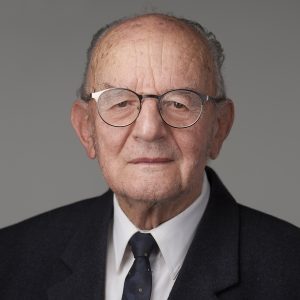Facts
The Applicant filed the mark „VÁSÁRHELYI TERV” (Plan VÁSÁRHELYI) in classes 41, 42 and 44. Against the application two observations were filed. The Observer No. 1. stated that the Applicant had applied for registration in bad faith, namely the Applicant’s intention was not to differentiate its services, but to prohibit the Observer as well as the Hungarian General Directorate of Water Management from using the term “Vásárhelyi”.
The Observer No. 2. stated that term applied for is an element of a characteristic expression for state plans and investments. As a result, the term applied for is deceptive in respect of the consumers.
The Hungarian Intellectual Property Office (HIPO) rejected the application. It said that the application is deceptive as in 2003 the Hungarian government started a program called Development of the VÁSÁRHELYI TERV in respect of the river Tisza Valley and flood prevention. This program received its name after the famous engineer Paul Vásárhelyi. The term „VÁSÁRHELYI TERV” has been repeatedly used since 2003 in different legal acts and became known by the public. The bad faith of the Applicant is evident by the fact that before the application he acquired the mark VÁSÁRHELYI.
The Applicant requested review with the Metropolitan Tribunal which was rejected. It was held that the Office was right to refuse protection considering the numerous legal acts in which the term „VÁSÁRHELYI TERV” appears to the consumers who can believe that the mark applied for is in connection with a state activity. As a result, the application can be misleading for the consumers. Moreover, the fact that the term „VÁSÁRHELYI TERV” is used widespread, of which the Applicant was aware, too, is a proof of acting in bad faith. From the warning letters written by the Applicant to the state authorities it is evident that his goal was to hinder the usage of his family name. In conformity with case law the fundamental task of the trademark is distinction of the owner’s services. If the goal of the trademark application is to hinder others from using a term, this realises the use in bad faith, too.
The Applicant filed an appeal with the Metropolitan Court of Appeal, but it was also rejected.
(8. Pkf. 26.253/2017)
Comments
Deception is prohibited since the Greeks and Romans. The same prohibition exists in European and Hungarian law, not only in statute trademark law, but more generally in commercial and civil law, too. Regarding the antonyms of good faith and bad faith, this has been known also since the Roman times (Bona fides – mala fides) in Latin with the prohibition of the latter. This prohibition exists of course also in the European law (e.g. Gold Bunny C-569/08), as well as in the Hungarian statute and case law.
Both prohibitions (deception/ bad faith) have a moral content. I believe that they had already existed before the Greek and Roman judges started to apply them. In the case referred to here the misleading use of the name „VÁSÁRHELYI TERV” appears. In fact, Pál Vásárhelyi was a leading person in the planning of flood protection in Hungary in the XIX. century. As a right hand of the Count István Széchenyi, he was the head of a team planning flood protection of the Lower Danube (now in Serbia, the last 100 kilometres before Belgrade) and the river Tisza and its tributaries. He was also a member of the Hungarian Academy of Sciences and author of some scientific books on water economy. He died during a professional intensive discussion.
It is no accident that the Hungarian authorities chose his name as a symbol for flood protection. The term „VÁSÁRHELYI TERV” is even today widely known by the public.
Dr. Sándor Vida LLD.
In-house Counsel
Doctor of the Hungarian Academy of Sciences







